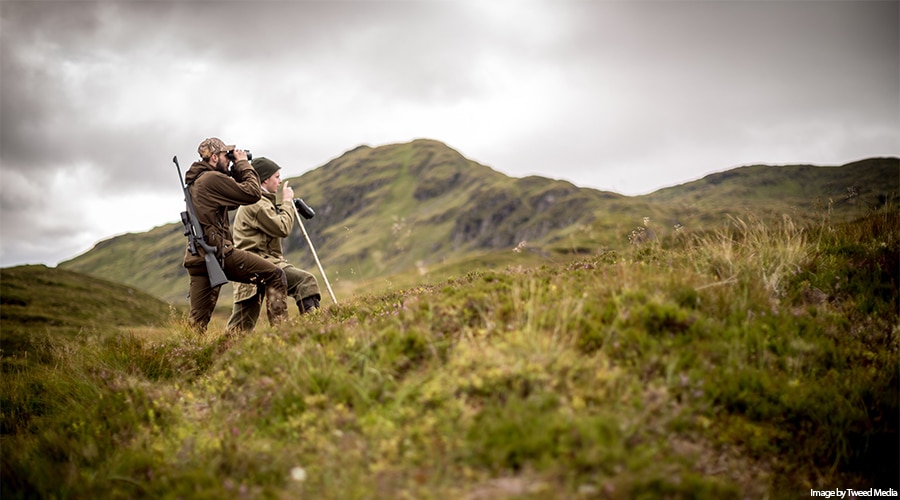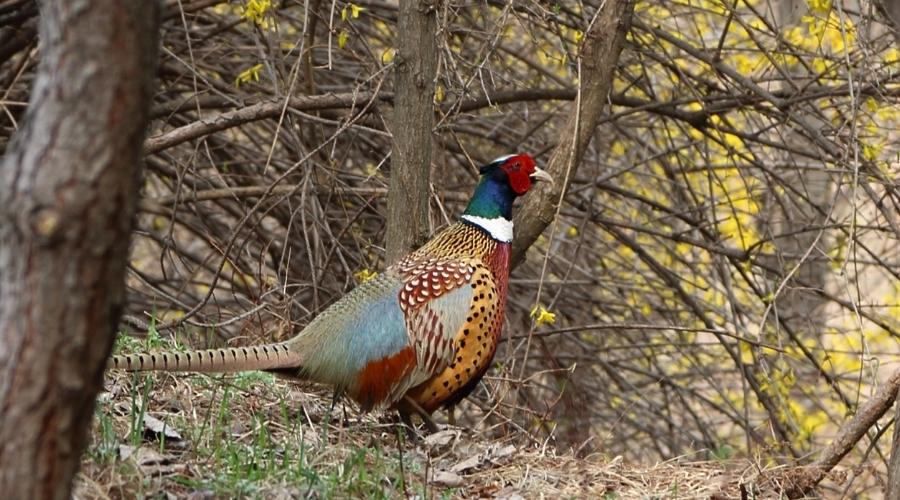
Survey seeks feedback on Scotland’s land use apprenticeships
Help shape the future of young people in Scotland.
Get information on the legal shooting season for mammals and birds in the UK.
Learn about our current conservation projects and how you can get involved.
Comprehensive information and advice from our specialist firearms team.
Everything you need to know about shotgun, rifle and airgun ammunition.
Find our up-to-date information, advice and links to government resources.
Everything you need to know on firearms law and licensing.
All the latest news and advice on general licences and how they affect you.

BASC has labelled the RSPB’s call to restrict the release of gamebirds to stop the spread of avian influenza as ignoring the evidence.
The RSPB is banging the drum for employing “a precautionary approach to all possible vectors of this deadly new virus to our wildlife population”, focusing its attention on gamebird release. However, it does so without any evidence to back such a move. The organisation’s release to the press admits this, saying the “spread from pheasants to wild birds has not yet been confirmed scientifically”.
In response, Glynn Evans, BASC head of game and gundogs, said: “For a national conservation charity, this campaign shows a fundamental lack of understanding of avian influenza, the government’s strategies to combat it, or how gamebird release is managed. The RSPB has failed to present a single piece of evidence to support their call and ignored the substantial role shooting plays in the countryside.
“Shooting is worth £2 billion to the UK economy, providing the equivalent of 74,000 full-time jobs. It is a significant contributor to conservation, rural jobs and the local economy.
“For a national conservation charity, this campaign shows a fundamental lack of understanding of avian influenza”
“This year’s outbreak of avian influenza is of serious concern and BASC and other representatives of the shooting sector have been working closely with Defra, the devolved administrations, and a wide range of stakeholders to ensure all necessary actions to reduce the transmission of avian flu are taken. The RSPB would better serve their members by doing likewise.”
Senior government wildlife experts, sceptical about the RSPB’s case, have said that there is too little evidence to substantiate its demands.
Avian influenza (AI) is spread by wild birds, not by gamebirds bred in captivity and then released into the wild. Should there be an outbreak of AI on a game farm, the birds within that farm cannot be released.
The RSPB has overlooked this process in its call to halt the release of “potentially infected captive birds, to limit the further catastrophic spread of avian influenza in wild birds.”
Gamebird releasing is included in the APHA risk assessment on High Pathogenicity Avian Influenza (HPAI) in housed or non-housed poultry flocks and captive birds.
The RSPB has also listed potential transmission links such as supplementary feeding and through human disturbance.
The irony in their campaign is that if any precautionary approach were to be taken forward, consideration of the domestic use of garden bird feeders and bird baths would be required, so too the continuation of allowing public access to nature reserves.
The RSPB relies on shooting’s efforts to help conserve species at risk. This campaign is deeply damaging to the positive and progressive partnership work being undertaken at ground-level.

Help shape the future of young people in Scotland.

BASC Scotland is urging the Minister for Environment and Land Reform to address the difficulties facing gamekeepers and rural workers.

After 10 years at the helm, BASC’s Glynn Evans has stepped down as chair of the England and Wales Poaching Priority Delivery Group.
Sign up to our weekly newsletter and get all the latest updates straight to your inbox.
© 2023 British Association for Shooting and Conservation. Registered Office: Marford Mill, Rossett, Wrexham, LL12 0HL – Registered Society No: 28488R. BASC is a trading name of the British Association for Shooting and Conservation Limited which is authorised and regulated by the Financial Conduct Authority (FCA) under firm reference number 311937.
If you have any questions or complaints about your BASC membership insurance cover, please email us. More information about resolving complaints can be found on the FCA website or on the EU ODR platform.
This website uses cookies so that we can provide you with the best user experience possible. Cookie information is stored in your browser and performs functions such as recognising you when you return to our website and helping our team to understand which sections of the website you find most interesting and useful.
Strictly Necessary Cookie should be enabled at all times so that we can save your preferences for cookie settings.
If you disable this cookie, we will not be able to save your preferences. This means that every time you visit this website you will need to enable or disable cookies again.
This website uses Google Analytics to collect anonymous information such as the number of visitors to the site, and the most popular pages.
Keeping this cookie enabled helps us to improve our website.
Please enable Strictly Necessary Cookies first so that we can save your preferences!
More information about our Cookie Policy